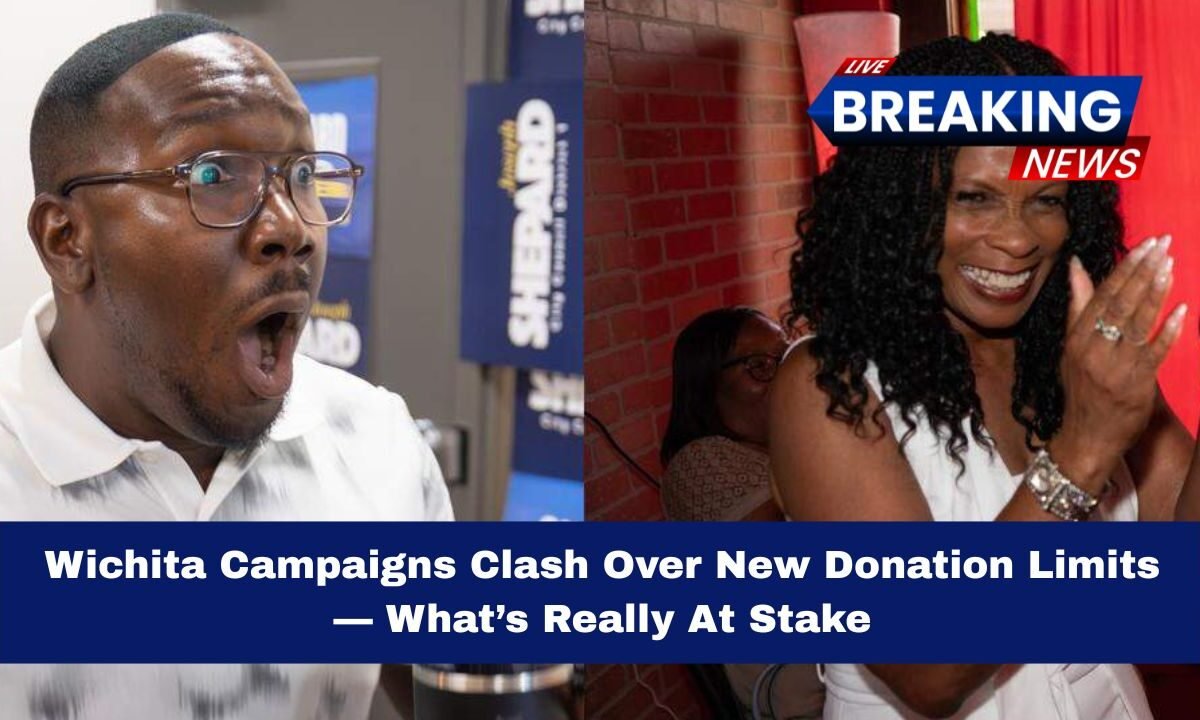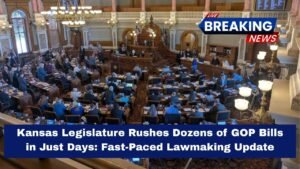The 1st District race for the Wichita City Council has erupted into a legal and political showdown over campaign contribution limits. Supporters of LaWanda DeShazer accuse her opponent, Joseph Shepard, of violating a city ordinance that caps contributions at $500.
Meanwhile, Shepard’s backers counter that a new state law allows contributions up to $2,000 in cities over 50,000 population, making the city ordinance unenforceable. The result: confusion, finger-pointing, and political risk — for both campaigns and for democracy itself.
In other words, they’re both probably right — but in the real world, this mess may not matter. Let me explain.
What the City Ordinance Says — and When It Was Passed
- Wichita’s city ordinance caps aggregate contributions to a candidate (or their committee) at $500 per election (primary and general).
- The ordinance makes it unlawful to accept or offer contributions above that cap, with penalties including fines and possible jail time.
- The amendment revising this was codified as Ordinance No. 52-355 in March 2024, updating Wichita’s campaign finance code.
- Under the ordinance, contributions from LLCs or corporations must report the principal owner.
What the State Law Says — and How It May Override
- Earlier in 2025, Kansas passed a law raising the contribution limit to $2,000 for local races in cities with more than 50,000 inhabitants.
- Wichita, as a city of that size, falls under that law.
- Under state law, individuals, corporations, partnerships, trusts, and LLCs all count as “persons” eligible to give up to that $2,000 cap.
- The debate: does state law supersede the city’s lower limit, or can the city enforce its stricter standard via home rule?
Who Says What? Positions in the Dispute
- City Attorney Jennifer Magaña maintains that the city ordinance is valid and in effect, arguing it is “presumptively valid” until challenged in court.
- Critics respond that as home rule is embedded in Kansas’s constitution, the city cannot impose lower caps if state law allows more.
- To avoid being a test case, Shepard returned $620 of contributions that exceeded $500 — complying tactically with city law, even if he disputes its supremacy.
- DeShazer’s supporters see that as an admission of wrongdoing; Shepard’s team views it as a political necessity.
The Loophole No One Talks About: Corporate & LLC Stacking
Here’s where theory diverges from reality: even under a $500 or $2,000 limit, wealthy donors can bypass the cap:
- Corporations and LLCs are permitted in Wichita campaign giving under the current rules.
- A donor owning multiple LLCs can route contributions through each separate entity — effectively stacking contributions well above any limit.
- Most big donors, such as developers, already maintain numerous project-level LLCs, making this workaround simple.
- Even if city and state limits were reconciled, the stacking loophole renders such limits largely symbolic.
Impacts on Wichita Politics & Voter Trust
- The dispute has already led to withdrawing funds, amended filings, and watchdog complaints.
- The community sees the clash as a distraction from actual policy debates.
- Voters worry about transparency and whether money — not merit — will decide the race.
- The city’s reputation for weak oversight and regulatory inconsistency may suffer further damage.
Key Facts
| Aspect | Detail / Number |
|---|---|
| City ordinance contribution cap | $500 per election (primary + general) |
| State law limit for cities >50,000 | $2,000 per election |
| Ordinance name & date | Ordinance No. 52-355, passed March 2024 |
| Amount Shepard returned | $620 (to comply with city cap) |
| Loophole factor | LLCs/corporations can stack contributions |
| Penalties under city law | Fine up to $2,500, up to 1 year imprisonment for violations |
Why the Dispute Matters (or Doesn’t)
1. It Does Matter Because
- At stake is election integrity: which rules candidates must follow.
- It signals whether Wichita enforces fair, modern campaign finance rules.
- The outcome could shape future races — who can contribute, how much, and who gets heard.
2. It Doesn’t Matter (Practically) Because:
- Stacking contributions via LLCs undermines any meaningful cap.
- The legal mess might never be resolved before the election.
- Most large donors can already work around limits.
- The end result is often the same: money leans toward power.
What Should Wichita Do?
- Pass a charter ordinance under home rule to clarify whether the city can impose stricter limits or align with state law.
- Amend city code to match state law if the city cannot legally enforce lower limits.
- Close loopholes: ban or restrict contributions from LLCs or require disclosure of all owners.
- Pursue legal clarity swiftly through courts, so candidates and voters know the rules early, not mid-race.
The Wichita campaign finance clash is more than a local squabble — it’s a microcosm of a perennial tension in American politics: who sets the rules, and who can bend them. On paper, we have caps, limits, and laws.
In practice, the combination of legal confusion and stacking loopholes means powerful interests often dictate outcomes. Wichita’s path forward should be clarity, consistency, and reform that closes gaps — otherwise, the slogans about “limits” and “integrity” will ring hollow.



